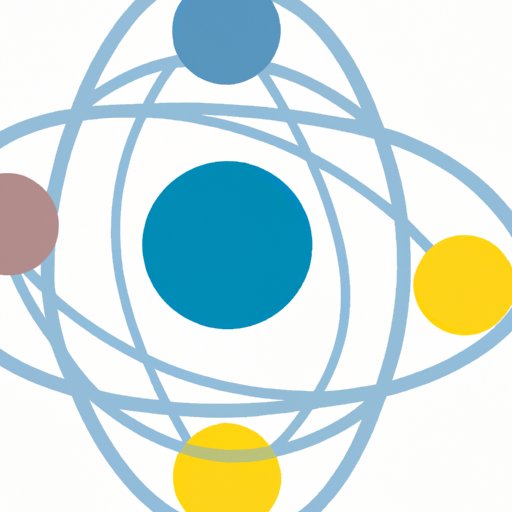Introduction
Atoms are the fundamental building blocks of all matter in the universe. They are the smallest particles known to exist and can only be seen using powerful microscopes. In this article, we will explore what an atom is in science, from its structure and properties to its role in chemical reactions and the development of modern atomic theory.
Exploring the Building Blocks of Matter: Atoms
Atoms are composed of three basic components: protons, neutrons, and electrons. Protons and neutrons make up the nucleus at the center of the atom, while electrons orbit around the nucleus. The number of protons in an atom’s nucleus determines its identity as an element. For example, an atom with one proton is hydrogen, two protons is helium, and so on. The number of electrons in an atom’s outer shell determines its chemical properties.
Atoms have several properties that affect how they interact with other atoms. These include their size, mass, electrical charge, and magnetic properties. Atoms can also form bonds with other atoms by sharing electrons. This process is called chemical bonding and is the basis for most chemical reactions.

The Role of Atoms in Chemical Reactions
Atoms play a crucial role in chemical reactions. When two atoms come into contact with each other, they can form a chemical bond. This bond involves the transfer of electrons between the atoms, resulting in a change in the energy levels of both atoms. This energy transfer is what drives the reaction forward, allowing it to happen. Chemical bonds can be strong or weak depending on the type of atoms involved and how many electrons are shared.
Atoms can also break and form new bonds with other atoms. This process is called a reaction, and it is the basis for all chemical processes in nature. For example, when two hydrogen atoms react with one oxygen atom, they form water molecules. Reactions like these are essential for life as we know it.

Understanding the History of Atomic Theory
The concept of atoms has been around for thousands of years, but it was not until the 19th century that scientists began to develop a comprehensive understanding of them. In 1803, John Dalton proposed his atomic theory, which stated that elements were made up of tiny particles called atoms. This theory provided the foundation for modern atomic theory, which states that atoms are composed of protons, neutrons, and electrons and that these particles interact with each other through chemical bonds.
In the late 19th and early 20th centuries, scientists such as Ernest Rutherford and Niels Bohr further developed the atomic model. They discovered that atoms had a nucleus, consisting of protons and neutrons, and that electrons orbited around the nucleus in shells. This model of the atom is still used today and is the basis for our understanding of atomic structure and behavior.
Conclusion
Atoms are the fundamental building blocks of all matter in the universe. They are composed of protons, neutrons, and electrons and have several properties that affect how they interact with other atoms. Atoms play a crucial role in chemical reactions, forming and breaking bonds with other atoms to create new substances. The concept of atoms has been around for thousands of years, but it was not until the 19th century that scientists developed a comprehensive understanding of them. Today, atomic theory is the foundation for our understanding of atomic structure and behavior.
Atoms have a profound impact on chemistry and society. They are essential for all chemical processes in nature, from the formation of water molecules to the synthesis of medicines. Understanding what an atom is in science is essential for furthering our knowledge of the world around us.
(Note: Is this article not meeting your expectations? Do you have knowledge or insights to share? Unlock new opportunities and expand your reach by joining our authors team. Click Registration to join us and share your expertise with our readers.)
